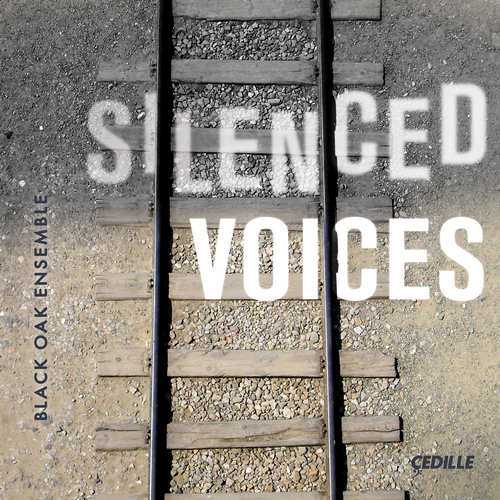
Performer: Black Oak Ensemble
Audio CD
Number of Discs: 1
Format: FLAC (tracks)
Label: Cedille
Size: 1.23 GB
Recovery: +3%
Scan: yes
Dick Kattenburg
01. String Trio
Sándor Kuti
Serenade for String Trio
02. I. Allegro giocoso
03. II. Scherzando
04. III. Adagio ma non troppo
Hans Krása
Passacaglia & Fugue
05. I. Passacaglia
06. II. Fugue
07. Tánec for String Trio
Gideon Klein
String Trio
08. I. Allegro
09. II. Lento
10. III. Molto vivace
Pál Hermann
11. String Trio
Géza Frid
String Trio, Op. 1
12. I. Allegretto
13. II. Andante cantabile
14. III. Allegro giocoso all’ungheres
Black Oak Ensemble, a string trio boasting three of Chicago’s most enterprising and dynamic chamber musicians, makes its recording debut with Silenced Voices, an album of intriguing works by six promising, early 20th century Jewish composers originally from Austria-Hungary, Czechoslovakia, and the Netherlands. One survived World War II as a member of the Dutch resistance, the others perished in concentration camps and elsewhere in Nazi-occupied Europe.
Silenced Voices includes the world premiere recording of wartime survivor Géza Frid’s early Trio à cordes, Op. 1, an inventive work infused with Hungarian folk music influences. Composer-cellist Paul Hermann’s Strijktrio, a forward-looking, cosmopolitan work from the early 1920s, shares its melodies among all three instruments. Dick Kattenburg’s youthful Trio à cordes was praised in a 1938 concert review for its “remarkable mastery and a very personal style.” Gideon Klein’s Trio for violin, viola and cello is notable for its treatment of a Moravian folk song that serves as the theme of its middle movement. Hans Krása’s Tánec (“Dance”) is a five-minute whirl of dancelike episodes framed by the sonic evocation of trains. His Passagalia is more somber, with its own train motifs, while its companion Fuga bears shades of Germanic and Czech influences and occasional grotesque touches. Sándor Kuti’s Serenade for String Trio brims with Hungarian folk music and piquant chord clusters. His Franz Liszt Academy classmate, conductor Sir Georg Solti, later proclaimed that Kuti “would have become one of Hungary’s greatest composers.”